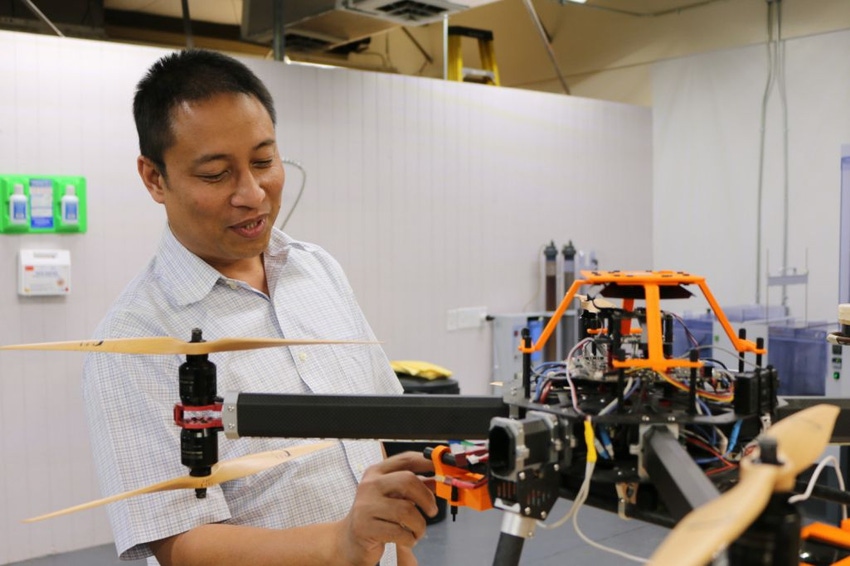November 1, 2016

Clemson University has been granted a blanket license by the Federal Aviation Administration to fly unmanned aerial vehicles (UAV) throughout the U.S. and to register more Clemson employees as UAV pilots.
The “Blanket Area Public Agency Certificate of Authorization” expands a previous FAA license that allowed research engineer Joe Mari Maja to fly a UAV for research purposes only at limited locations in South Carolina. Now, Maja can fly a “small UAV” weighing less than 55 pounds anywhere in the United States.
The new license also allows Clemson to register more Clemson employees as pilots. Maja said he plans to develop or co-develop training and certification materials with the help of the legal counsel of Clemson University for safe and responsible operation of UAV for the university operators.
Maja is using UAVs to monitor crop health and gather data to improve farming efficiency and productivity by letting growers know precisely when and where to water, fertilize or spray crops. The eyes in the sky also quickly spot diseased livestock that require attention.
Maja, a sensor engineer, is fitting his UAV with “intelligent agri-tronics devices,” sensor-based technologies can be used on UAVs to collect a wide range of crop data quickly to help farmers improve soil quality and eradicate pests and disease. The UAVs allow for much quicker crop monitoring; a UAV can analyze a 10-acre field in less than five minutes, work that takes a person days or weeks to complete, Maja said.
“I believe the applications for this are very diverse,” said Maja, who has a background in computer engineering. “UAV is a game-changer in precision agriculture.”
Precision agriculture reduces waste and optimizes farm equipment and materials by targeting the amount and locations of water, fertilizer and chemicals to the specific areas of a field where the products are needed. Maja’s work is particularly important in South Carolina, where fields are subject to high degrees of soil variability.
Last year, Clemson’s Edisto Research and Education Center opened a high-tech sensor laboratory that allows Maja and his colleagues to develop precision-agriculture technologies that once would take weeks or even months to build, test and refine. Working with Clemson entomologists, agricultural engineers and agronomists, Maja is building circuit boards and sensors he has designed to be used in fields, on agricultural equipment or on his UAV.
With the new machines installed at the Edisto REC, Maja can build a variety of interface boards, controller system boards and connected products that allow technologies to collect and exchange data. Some of these technologies are online at www.iad4sc.com.
You May Also Like




